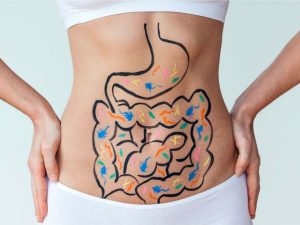It is not uncommon to eat without hunger after a difficult day, because of an argument, or after a meeting that is too late. Sometimes we open the fridge to snack, we eat a package of cake out of greed, boredom, or to relax after a busy day.
So what is emotional eating? It is a very common way of eating among women. Unfortunately, this eating behavior can be the cause of severe weight gain. And that’s the biggest obstacle to fast, healthy weight loss.
We’re going to take a look at emotional eating, to help you spot the signs. If you are in this situation, rest assured, here you will find the tips to lose your emotional pounds.

What is emotional eating?
To detect emotional eating, let’s start by seeing a quick definition of this eating behavior. Often times, it can be akin to overeating.
Emotional eating is the act of eating without hunger in response to strong or negative emotions.
I know that feeling well, which is what made me put on all my weight. Maybe this has happened to you before. You’re coming home from a rough day, there’s been a delay on the trip, and you need to relax. So you have a good aperitif, followed by a big meal and several sweets. You eat without hunger, simply to please yourself and relax.
It’s not your fault: everything is working against you. Your body releases pleasure hormones when you eat. What will come to appease the strong and negative emotions felt during the day
I’m talking about emotional eating for your well-being and your weight. Getting out of an emotional spiral with food is incredibly important.
Here are 3 revelations about emotional eating to help you spot if you are in this situation.
Weight gain and emotional eating
Our bodies are a complex, well-oiled machine that needs balance.
In women, the mechanism is even more complex with the hormones that are directly involved in emotional balance.
Without a stable affective and emotional balance, we are therefore more likely to eat without hunger when emotionally driven. That is, the urge to eat is triggered by affect and not by hunger.
Which has an incredible impact on weight gain: eating without being hungry makes you fat.
A lot of times, when you gain weight without realizing it, it can be exceptionally powerful to look at emotional eating.
Stress and emotional eating
Since emotional eating is triggered by affect, it is therefore necessary to balance your emotional balance.
Stress will therefore be a direct trigger for emotional eating crises. This is why after a tense day, after a frustration or a quarrel as a couple, it is not uncommon to fall back on food.
Often emotional eating is also linked to depression, which I was. So I fully understand the sensation that this can cause when one is under stress and the reaction is emotional eating.
By becoming aware of the trigger for this eating pattern, you will pinpoint what prompts you to these food cracks.

Food cravings and emotional eating
Another sign that you are in an emotional diet: frequent and regular food cracks.
You come home in the evening, you open the fridge and eat without hunger with the desire to fill you up without stopping. You are not particularly hungry, but you want to eat.
So you eat a lot and quite quickly rather fatty and sweet foods. Clearly, these are food crackers. Usually after such an episode you feel stuffed up, feel guilty and feel bad.
Rest assured, this is not irreversible. Here on the blog, there is everything you need to shed your emotional pounds.



